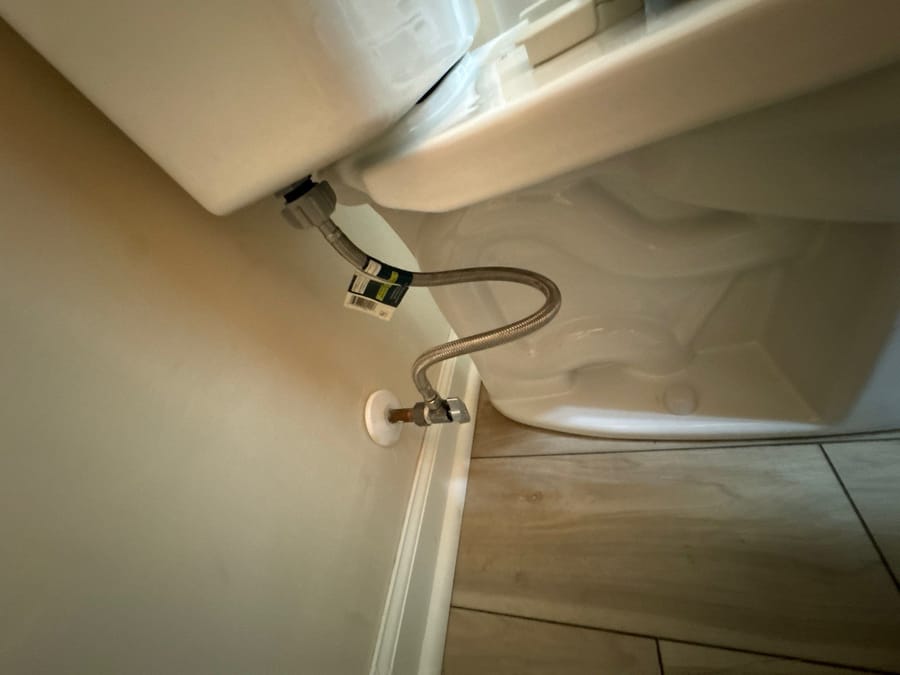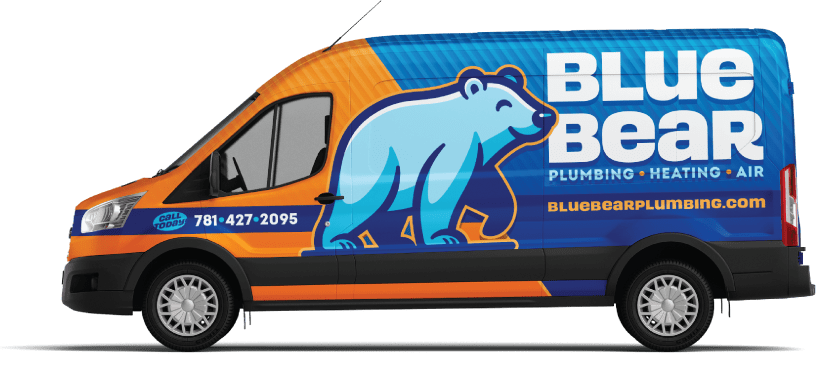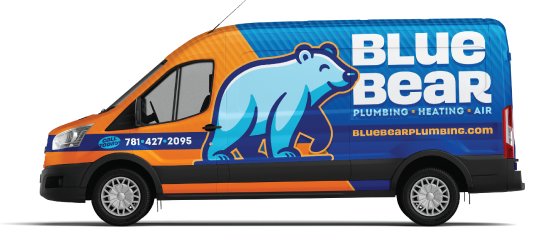Backflow Prevention in Massachusetts Homes: Why It’s Required & How to Test It

Clean water is essential for every Massachusetts home. Whether it’s for drinking, cooking, or cleaning, homeowners rely on safe water daily. Protecting that water supply isn’t just about convenience—it’s about health, safety, and compliance with state law. One of the most important tools for ensuring safe water is backflow prevention.
In Massachusetts, backflow prevention is more than a recommendation. It is a legal requirement designed to protect the public water system from contamination. At Blue Bear Plumbing, we help homeowners understand how backflow occurs, why prevention devices are needed, and how regular testing keeps your home compliant.
Why Backflow Prevention Matters in Massachusetts
Clean water is essential for every Massachusetts home. Whether it’s for drinking, cooking, or cleaning, homeowners rely on safe water daily. Protecting that water supply isn’t just about convenience—it’s about health, safety, and compliance with state law. One of the most important tools for ensuring safe water is backflow prevention.
In Massachusetts, backflow prevention isn’t just a recommendation—it’s required by law. At Blue Bear Plumbing, we help homeowners understand how backflow occurs, why prevention devices are needed, and how regular testing keeps your home compliant.
What Is Backflow and Why Does It Happen?
Backflow occurs when water flows in the opposite direction from where it should go. Instead of clean water moving into your home, contaminated water reverses course and seeps into the public water supply.
This usually happens because of sudden changes in water pressure, such as:
-
A water main break in your neighborhood
-
Heavy water usage during peak hours
-
Firefighting activity that lowers water pressure
Without protection, dirty water can be pulled back into clean lines, threatening your household and your neighbors.
Everyday Sources of Backflow in Homes
Residential backflow often starts with common connections, including:
-
Garden hoses left submerged in buckets or pools
-
Lawn irrigation or sprinkler systems
-
Pool and hot tub plumbing
-
Water softeners or filtration systems
Without a proper device, chemicals, fertilizers, or wastewater can seep back into drinking water. That’s why Massachusetts law requires protection in certain cases.
For additional protection tips, review our fall plumbing checklist to make sure your home is prepared for seasonal water challenges.
The Risks of Backflow
Backflow is more than an inconvenience—it’s a major hazard. Contaminants such as pesticides, cleaning chemicals, and even sewage can enter your drinking water. The result can be serious health risks and costly damage to your plumbing system.
It can also lead to penalties if your home is found out of compliance with Massachusetts regulations. In urgent cases, knowing what to do in a plumbing emergency could save time and limit damage.
Massachusetts Backflow Prevention Laws
The Massachusetts Department of Environmental Protection (MassDEP) requires certain homes and businesses to install backflow prevention devices and have them tested annually.
Homes are typically required to have devices if they feature:
-
Lawn irrigation or sprinkler systems
-
Pools or hot tubs
-
Private wells connected to municipal water
-
Water treatment equipment
-
Fire sprinkler systems
Your local water department may also enforce additional requirements.
How Backflow Prevention Devices Work
Backflow devices act as one-way gates, allowing clean water to enter while blocking contaminants from flowing back.
Types of devices include:
-
Double-check valve assemblies for standard residential use
-
Reduced pressure zone devices (RPZs) for higher-risk situations
A licensed plumber can determine which device is right for your property.
Maintaining and Testing Backflow Devices
Like any plumbing system, backflow devices need regular maintenance. Seals wear out, valves clog, and parts fail over time.
Massachusetts requires annual testing by certified professionals to ensure devices are working properly. Homeowners are responsible for scheduling and filing proof of testing, which is why many rely on Blue Bear Plumbing to handle reminders and compliance.
Backflow prevention fits into your larger plumbing maintenance plan. By including testing along with seasonal inspections, you can protect your home year-round.
Why Choose Blue Bear Plumbing
At Blue Bear Plumbing, our certified backflow testers provide:
-
Licensed installation, testing, and repairs
-
Full compliance with Massachusetts water safety laws
-
Clear, upfront pricing with no surprises
-
Reliable reminders for annual testing
Whether you need a new device installed or want to confirm your existing one is working correctly, we’ve got you covered. We also provide broader system care, from sewer line replacement in Massachusetts to routine inspections.
Protect Your Water, Protect Your Home
Backflow prevention isn’t just about following state regulations—it’s about keeping your family and community safe. By installing the right device, scheduling annual testing, and partnering with trusted professionals, you can ensure your home’s water remains clean and reliable.
Call Blue Bear Plumbing today at (857) 433-8414 to schedule certified backflow testing, installation, or repair. With our expert team, your home will always be safe, compliant, and ready for every season.
Contact Us Today

Routine maintenance is vital for the longevity of your plumbing, heating, and air conditioning systems. Sign up for our Blue Care Maintenance Plan for annual service and exclusive membership benefits, including:
- Priority scheduling
- Waived service fee during normal business hours
- 10% discount on service calls
- 3% discount on new installations
- Two-year parts and labor warranty on new equipment






